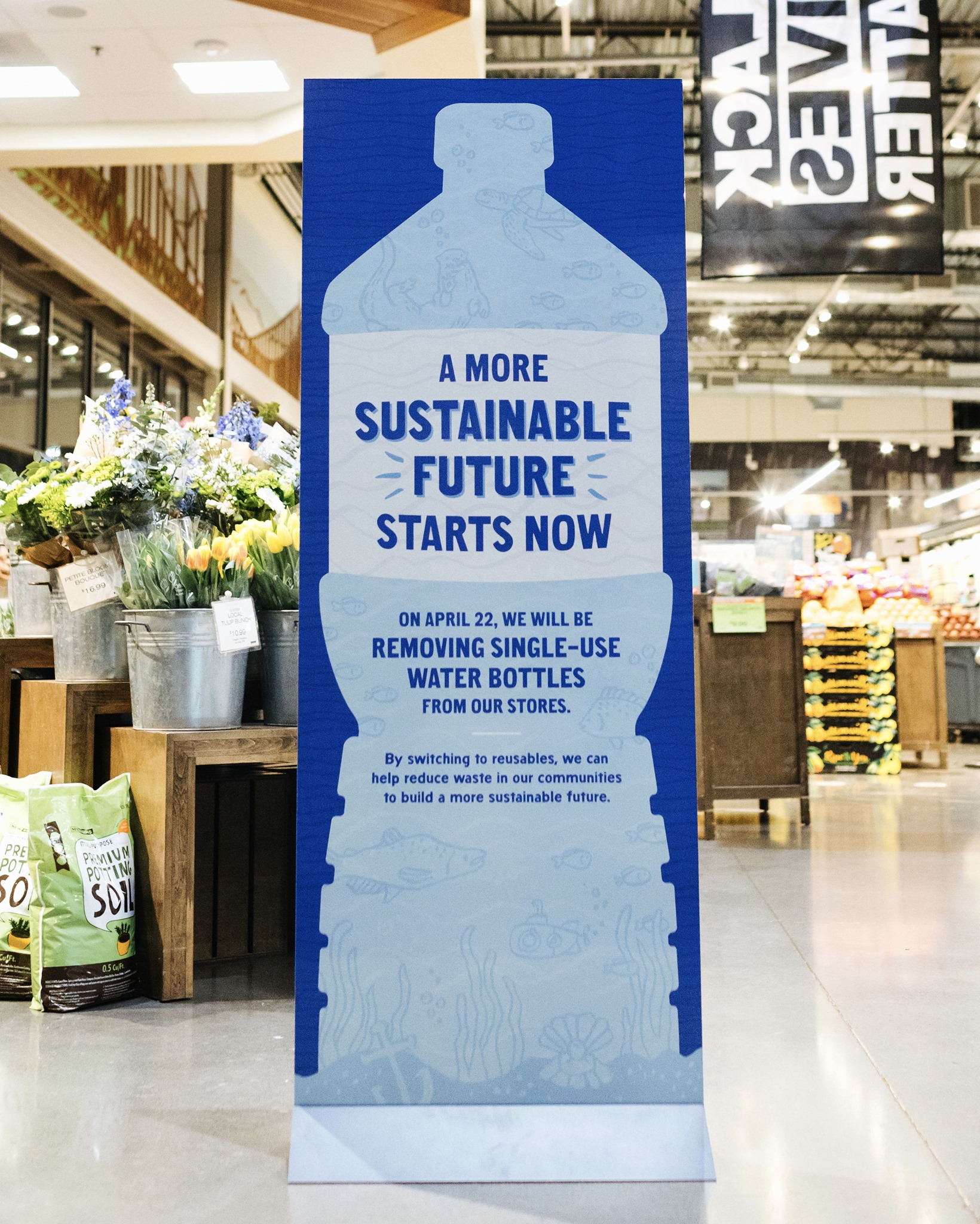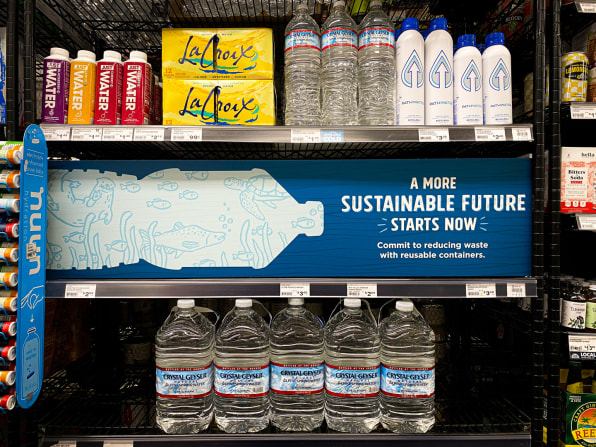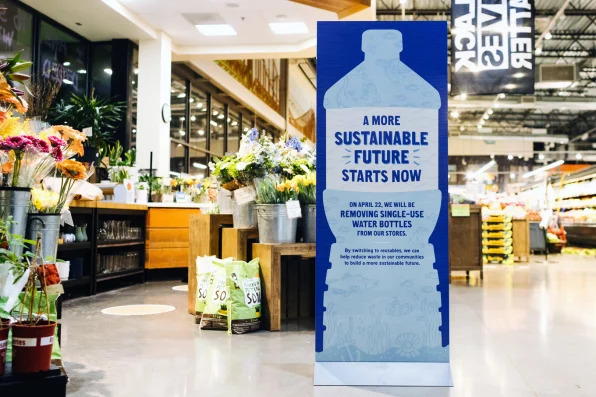
- Sustainable Planet -
- 4mins -
- 349 views
Grocery chain to ditch single-use bottled water—and not just plastic either!
Oregon and California supermarket chain to discontinue the sale of still water bottles—size 1lt or less in single-use plastic, fibre, aluminium, or glass containers—before Earth Day 2021, and offer more eco-friendly alternatives instead.
Grocery chain leaves single-use bottle water high and dry
As from Earth Day, April 22, 2021, New Seasons Market (a chain of 19 stores primarily based in Oregon) and New Leaf Community Markets (its California-based subsidiary), will no longer sell standard single-use bottled water. As part of their ongoing efforts to reduce waste, the company say this action alone will remove almost 200,000 single-use plastic, aluminium, fibre and glass bottles from our planet this year.

If you can get it from the tap, you can’t buy it from these stores
Starting from Earth Day, April 22, 2021, New Seasons Market (a chain of 19 stores primarily based in Oregon) and New Leaf Community Markets (its California-based subsidiary), will no longer sell standard single-use bottled water.
As part of their ongoing efforts to reduce waste, the company say this action alone will remove almost 200,000 single-use plastic, aluminium, fibre and glass bottles from our planet this year.
New Seasons Market, a chain of 19 stores primarily based in Oregon, and New Leaf Community Markets, its California-based subsidiary, will no longer sell standard single-use bottled water, starting on Earth Day, 22 April.
Shelves that used to hold bottled water will be mostly empty, with plastic and glass bottles replaced by a smaller number of reusable bottles. Another empty shelf below it will be covered with a sign boosting reuse. New Seasons Market’s decision applies to all aluminum and glass bottles as well.
The stores will continue selling larger plastic jugs of both still and sparkling water. “We did a variety of analytics to decide what is the right mix and size of water bottles to eliminate from our shelf and decided to go with anything that you could get from the tap,” sustainability manager Athena Petty told FastCompany. “So that’s one litre and less still water.”
For customers who come into the store wishing to leave with a small bottle of water, a reusable bottle from Pathwater is a replacement. The stores also have refill stations.
While its customers in sustainability-focused Portland and Santa Cruz might already be more likely than the average American to carry reusable bottles, the change will still make a difference: In a year, the stores have been selling more than a quarter of a million bottles of water.
Source: FastCompany

https://www.newseasonsmarket.com/sustainability/
- New Seasons Market is committed to reducing their food waste 50% by 2030.
- They partner with over 50 hunger relief organisations, including Urban Gleaners and Oregon Food Bank, who are committed to providing quality food to those experiencing hunger in their communities.
- Bag it Forward community donation program lets you donate a 5 cent reusable shopping bag refund to one of three nonprofits in your local store’s neighborhood.
- Their Neighbor Rewards program offers environmental incentives, including e-receipts and bonus points when you shop with reusable bags.
- They’ve eliminated single-use service ware and straws in all their stores, offering only reusable utensils to prevent waste before it starts.
- As a partner of Portland’s own GO Box, they currently offer reusable takeout containers in all Portland area stores. With GO Box, customers can take their food in reusable to-go boxes and drop the containers back off for washing and reuse.
- In-store customer recycling programs are offered for plastic film, cork, aluminum cans and Paktech plastic handles.
- 100% of their electricity was purchased through Renewable Energy Credit in 2020, avoiding 1,293 pounds of carbon emissions, or the equivalent of removing 400 cars from the road annually!
To read New Seasons Market suitability policies in full, click here.
Source: NewSeasonsMarket


